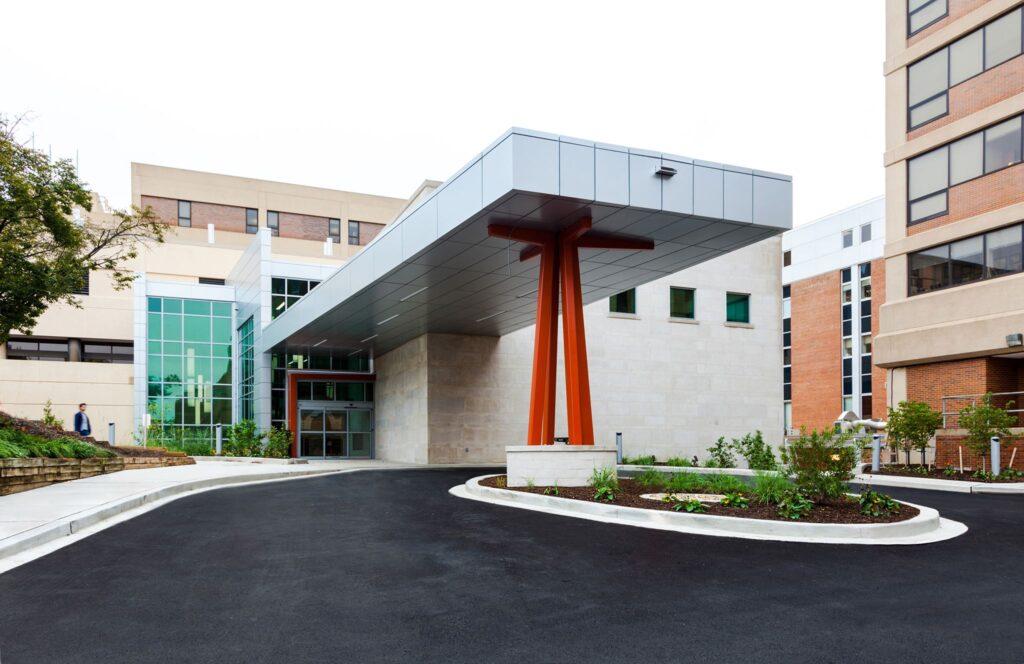A cancer epidemiology and control researcher discussed new findings on treating cancer survivors at a talk hosted by the Georgetown University Lombardi Comprehensive Cancer Center.
The Oct. 14 event, entitled “Predicting and Preventing Adverse Outcomes in Cancer Survivors,” was part of the Lombardi Center’s ongoing Survivorship Research Initiative seminar series. The center’s goal is to improve the treatment of cancer patients both during and after recovery in a more equitable way. Dr. Smita Bhatia, a professor at the University of Alabama at Birmingham (UAB) and director of the UAB Heersink School of Medicine Institute for Cancer Outcomes and Survivorship, an organization that conducts research to support cancer survivors, presented at the event in hopes of drawing attention to complications of cancer treatment that are often overlooked.
Bhatia’s presentation focused on childhood cancer survivors, a demographic she said is especially vulnerable to the harmful effects of drugs and other preventative measures that patients undergo.
“Childhood cancer survivors are at a sixfold higher risk of dying,” Bhatia said at the presentation. “And their life is shortened by one to two decades, so this is quite a sobering thing.”

The Georgetown University Lombardi Comprehensive Cancer Center discussed improving the treatment of cancer patients during and after recovery during an event on Oct. 14.
Bhatia spoke about the model she created to predict likely adverse outcomes in childhood cancer survivors, sharing the factors that contribute to those outcomes most often — genetic predisposition, lifestyle exposures and viral infections.
Bhatia said these factors can inform researchers and healthcare providers on how to proactively identify cancer survivors who are particularly vulnerable to the negative effects of treatment.
“All of these can help us in identifying those who are at the highest risk of developing these complications,” Bhatia said. “And we can use this information to modify therapeutic exposures, screen patients who are at the highest risk or institute some risk reduction strategies.”
For children with cancer, radiation therapy creates a higher risk of developing brain tumors and breast cancer in the future, according to Bhatia. As a result, she conducted research on tamoxifen, an FDA-approved option for mitigating the risk of breast cancer, and found that it can be effective at doing so.
In her presentation, Bhatia discussed four chronic health conditions that therapeutic exposure to radiation during treatment may cause: bone degradation, congestive heart failure, tumor regrowth and stroke. Her research examines the specific genes that increase the risk of these outcomes, especially the risk of cardiomyopathy, or a weakening of heart muscle, in response to a type of cancer treatment drug called anthracyclines.
Despite these complications, Bhatia said cancer research is progressing in the right direction.
“The question is, ‘Are we there yet?’ Well, not yet,” Bhatia said. “But I think we’re solidly on the path to where we need to be.”
Dr. Nina Kadan-Lottick, director of the Survivorship Research Initiative at the Lombardi Center, said the seminar series gives Georgetown community members the opportunity to hear firsthand about national leaders’ new research in the cancer survivorship field.
“These seminars energize and inspire our Georgetown faculty and trainees,” Kadan-Lottick wrote to The Hoya. “They lead to further innovative ideas and multidisciplinary collaboration on both clinical and research initiatives.”
Kadan-Lottick said the work Bhatia and the initiative are doing helps support survivors throughout their cancer journey.
“Survivorship encompasses the patient’s experience of the physical, emotional, and social impact of being treated for cancer and the late effects that can persist or newly develop after therapy ends,” Kadan-Lottick wrote. “It is about quality of life, not just the quantity of life.”















